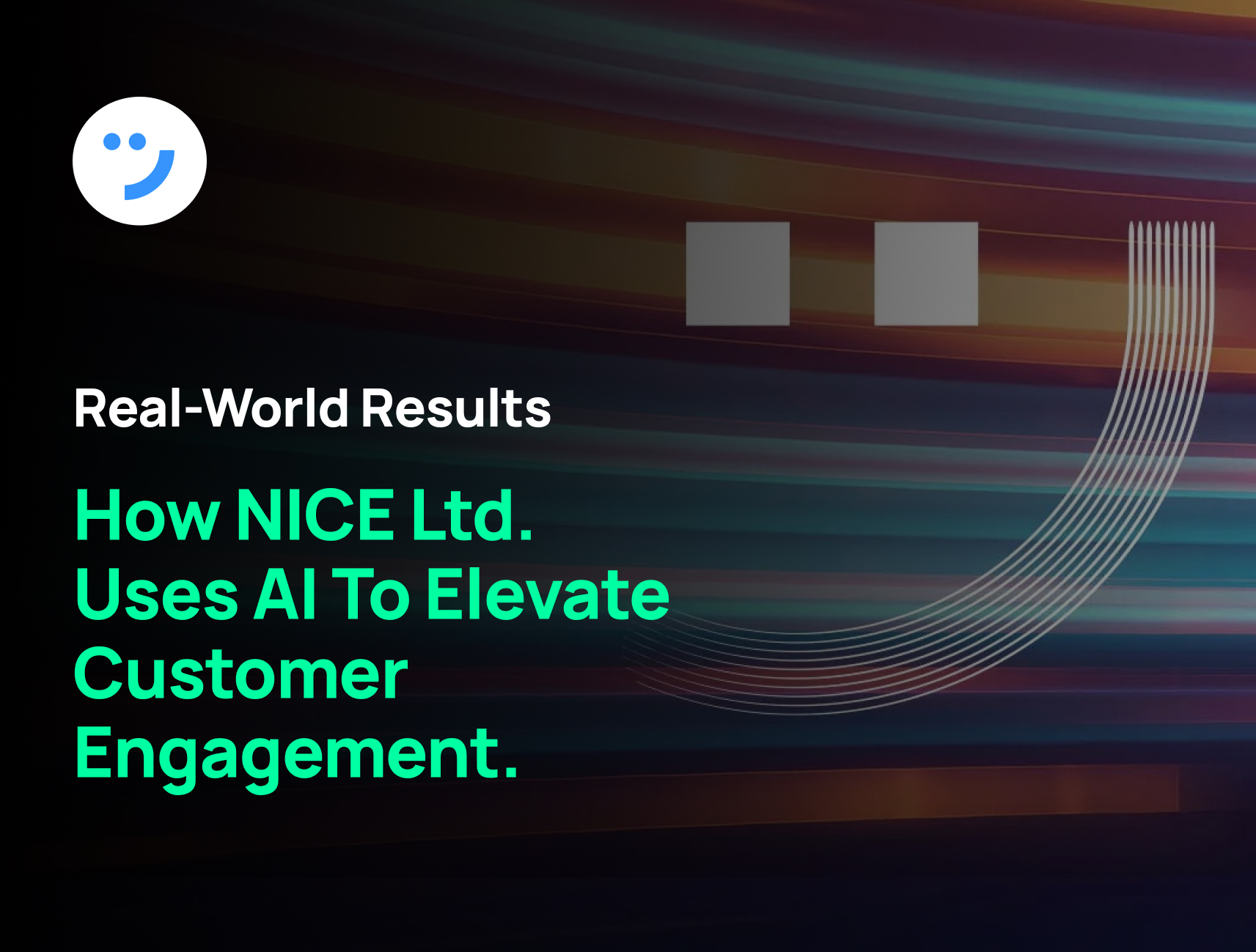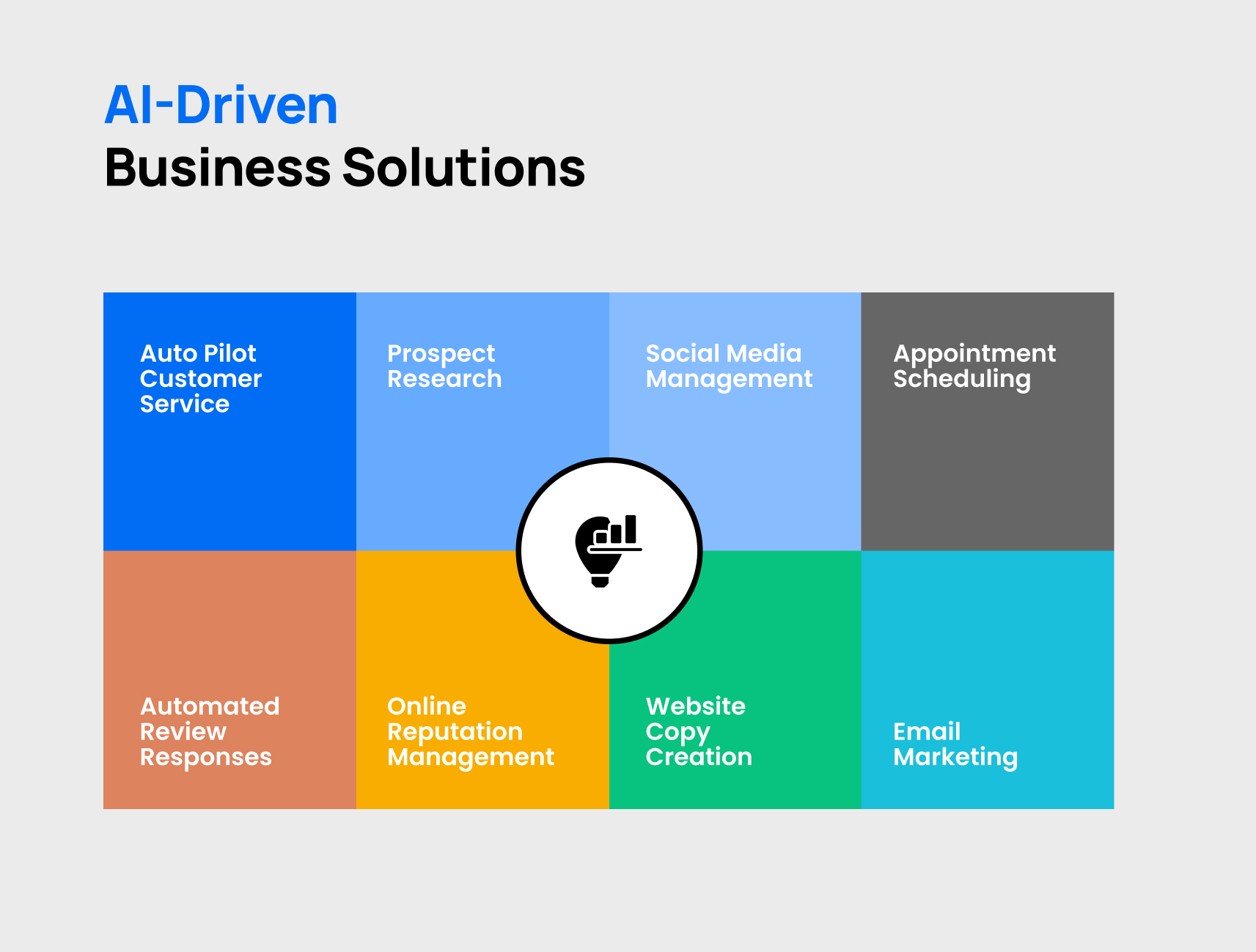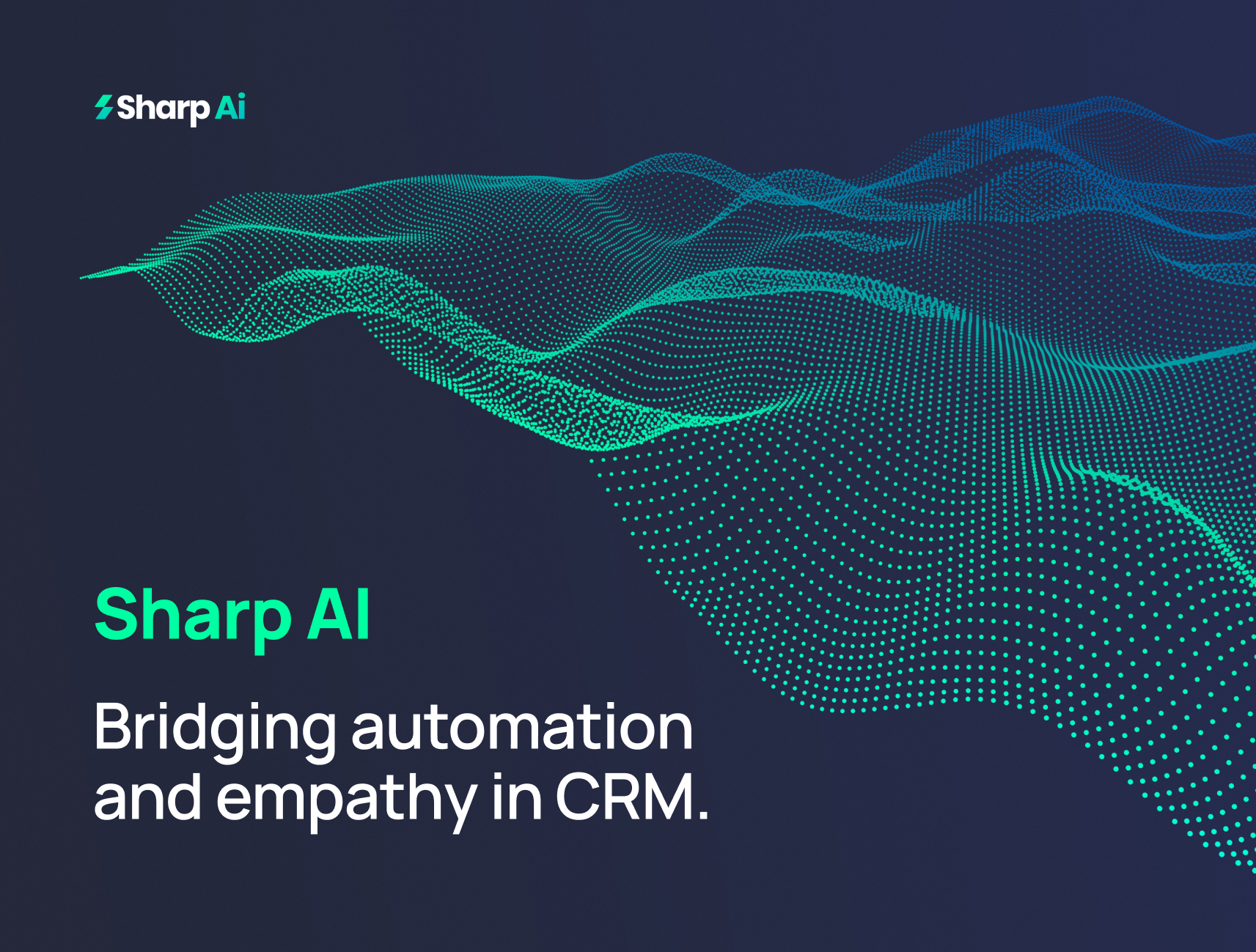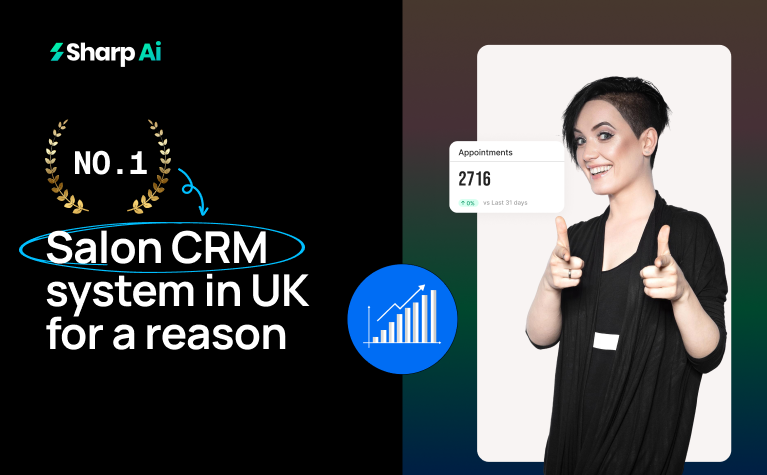Traditional CRM Systems are a Thing of the Past!
What’s the point of having CRM software if it cannot keep up with your ever-shifting demands? Stats show that businesses that have a 360-degree customer overview are more likely to drive towards booming success, innovation and growth. Artificial intelligence (AI) is smartly taking over the world, and has the tendency to consolidate data, teams to provide premium and stress-free customer service.
With artificial intelligence (AI), you can achieve this feat at a moment’s notice, leaving you with the energy and resources to handle the creative aspects of your business. Integrating AI into your customer relationship management (CRM) system reinvents client conversations, eliminates busywork, and sharpens decision-making.
From the first pitch to the final sales, you possess stacks of tech data that can be utilised to make more room for improvements in your customer relationship management software (CRM).
With its complex data processing and deep generative models, AI can grab opportunities at the right time to help you score more sales. 89% of global business executives agree on integrating AI into CRM for a well-mapped out strategy and smoother workflows. (Source: Forrester Consulting).
Outpace your competition, or risk falling behind. Get to know more about AI-powered CRM and how they are shaping the future with amazing benefits, and how to implement them into your CRM.
What is CRM AI ?
While traditional CRMs serve primarily as information databases, AI-integrated CRMs learn from customer behaviour, purchases, and interactions. Using machine learning and natural language processing, CRMs with AI utilise predictive analytics and automation to convert raw customer data into valuable insights. This enables organisations to predict what customers want, customise experiences and improve operational productivity.
What is AI Integration in CRM?
AI Integration in CRM systems mean the addition of functions such as intelligent lead scoring, AI chatbots, sentiment analysis, and AI sales forecasting into CRM workflows to enhance customer interactions. These systems empower sales, marketing, and customer support teams to work in a more smart-driven manner.
Sales teams get real-time assistance on what prospects to prioritise to ensure optimal close rates, minimising wasted effort and time aimed at conversions.
Tailored messages for specific customer segmentation, ensuring higher engagement and ROI for marketing teams.
For customer service teams, AI chatbots are an AI-powered tool that resolves common queries, allowing human agents to provide complex problem solutions.
Real-time Example: NICE Ltd. - IT Customer Experience with AI-Powered CRM
Company Overview
A technology company, NICE Ltd., develops customer experience (CX) software and has features like NICE CXone and the Enlighten AI engine. These are the tools that enable businesses to improve customer engagement through predictive analytics, automation, and personalised service.
AI Integration in CRM
NICE Ltd. has Integrating AI into CRM solutions to inspire customer care and experience. With their AI engine, Enlighten AI uses machine learning and natural language processing that analyse customer interactions, predict needs, and provide automated responses. This combination enables real-time intelligence with custom solutions.
Impact On IT Industry Customers
NICE’s AI-powered CRM services have enabled IT companies to record a dramatic enhancement in the efficiency and effectiveness of customer service. By automating repetitive questions and getting the right recommendations to agents, these companies can handle more complex questions, resolve the case faster, and keep their customers happier.
Bottom line: The CRM systems of NICE Ltd that are AI-integrated show how even IT companies can adopt advanced technologies to improve the relationships with their respective customers.

What are the different types of AI in CRM?
While artificial intelligence (AI) has a nearly limitless potential to show what can be achieved by automating processes, making better decisions and personalising the interactions between customer and business. Understanding these different types of AI helps companies apply the right technology to solve their problems, and that will make their CRM systems more effective.
Generative AI
Generative AI uses state-of-the-art machine learning models to generate new content based on patterns found in data. Specifically in the CRM, this kind of AI can automatically author emails, social media posts, ad copy, and other sales material.
Making content faster, generative AI supercharges your team’s creativity and helps you maintain a consistent brand voice as well. This feature is especially useful for sales and marketing teams who want to communicate with their customers manually.
Predictive AI
Predictive AI utilises historical data, patterns, and statistical algorithms to predict the future. In CRMs with AI systems, it is an enabler of capabilities such as sales forecasting, lead scoring, and customer churn prediction.
Businesses can surface their top-performing prospects, make resource trades, and anticipate market trends with this AI category. Supporting strategic planning and driving overall sales effectiveness through actionable insights.
Conversational AI
There are three types of conversational AI, including chatbots, virtual agents, and voice assistants that understand and reply to human language in real life. These solutions use natural language processing (NLP) and natural language understanding (NLU) that enables friction-free, auto-pilot conversations with customers.
In CRM, conversational AI is the engine room of customer service – instantly offering help, understanding user queries and logging important interaction data 24 hours a day. This is not only better for the customer, but it also relieves these human agents from handling more complicated questions.

5 Benefits of Using AI in Your CRM
CRMs have the key to keeping organised customer information and building great relationships. And now by adding AI into the mix, everything changes – your AI CRM tools get smarter, your team gets more productive, your business gets ready for growth. That’s no surprise, as Forbes reports that 46% of business owners are now applying AI in customer relationship management.
Here’s a quick peek at five of the best ways AI can help supercharge your CRM and drive your business forward:
Optimised Workflows
Automation of repetitive tasks is one of the most impactful advantages that comes with implementing AI in your CRM. Rather, it uses AI to automate tedious tasks such as inputting data, booking appointments, and drafting reports. This saves human error, alleviates manual labour, and releases precious time. With fewer administrative duties, your team is able to focus on high-value work such as building relationships and closing deals.
Some of the prominent examples of AI automation used in CRM
Adding meetings and reminders to AI-powered calendars
Live update of customer records during interaction
Sales reports generation on autopilot
Effective filtering of leads and distribution
Customising email replies for more effective customer interaction
AI-powered Customer Foresight
Artificial intelligence pushes the process companies use to learn about their customers by examining vast sets of data to recognise patterns that humans may miss. With AI in your CRM, you can tap into valuable information about customer behaviour, preferences and market trends to better optimise your strategies and up your marketing schemes.
Here are a few of the main ways AI leverages customer insights
Revealing buying behaviours and anticipating coming purchasing decisions
Decoding the sentiment of your customers (social media and feedback)
Precise measurement of marketing campaign effectiveness
Observing dynamic market trends and modifying the strategies accordingly
Dividing customers into groups – who they are, what they do, what they like
By converting raw data into actionable insights, AI can help keep your business in front of customer demands, increase satisfaction, and decrease churn.
Better Customer Engagement
Customisation is the cornerstone of today’s customer service, and AI is instrumental in elevating these engagements. Through real-time data analysis, AI helps companies to provide personalised communication that speaks with every customer. By way of chatbots, virtual assistants, AI-generated email suggestions, etc., the tech offers a personalised, efficient, frictionless customer experience that increases engagement and loyalty.
Critical features AI brings to customer interactions
Real-time response with AI Chatbots and Virtual Assistants
Tailored offers according to purchasing history and preference
Predicting customers’ requirements and with a proactive solution
To enable unified communication across multiple channels
These features not only enhance the customer experience and increase retention and recurring revenue.
Precision Workforce Utilisation
AI enables businesses to maximise their resources by providing data-based guidance around where to spend time, money, and energy. For example, predictive analytics can tell sales teams which leads are most likely to turn into customers, helping sales teams better allocate their time. The same goes for Infusing AI into CRM , but this time it can point out trends and predict demand, thus helping businesses to stock up on the right goods.
Here is how AI makes resource allocation better
Predictive analytics can be used to help sift through all of the potential highest leads at the top of the funnel.
Distributing marketing spend to the most ROI-effective channels
Prediction of staffing demands by using trends in workload
Re-targeting resources to under-performing areas for the greatest effect
More efficient management of inventory levels according to forecasted demand
Placing AI at the centre of these decisions means that businesses can minimise waste, enhance productivity and concentrate on the areas that are set to yield the most value.
Next-Gen Business Strategy
AI itself allows companies to get ahead of the curve by forecasting market trends, customer demand, and sales revenue. This ability to see around corners helps businesses make proactive, data-driven decisions to reduce risk and maximise opportunities. You can model multiple business scenarios, discover potential areas of growth, and adjust to new market conditions when AI is part of your CRM.
Here’s how AI supports strategic planning
Sales and market predictions with reliability
Assessing the competitive environment and identifying new avenues for growth
Trying out various business scenarios to make the best strategic decision
Detecting customer trends to react to them as they happen
Leveraging foresight to drive vision and strategy toward organisational objectives
Artificial intelligence is what enables businesses to confidently steer through uncertainties and, therefore, serves as an indispensable tool for long-term success.
How to Incorporate AI in Your CRM
Adding AI to your CRM software may seem daunting, but when done right, it can change the way your team operates and how your business scales. Here’s a simple, step-by-step guide that will enable you to introduce AI to your CRM the right way.
Laser-Focused Goals
Before you climb down into the tech nitty-gritty, it helps to really figure out what it is you want AI to do for you. Do you want to optimise your sales process, enhance customer support, and get data-driven facts about your clients? Establishing specific goals will shape your AI CRM tools selection and allow you to measure success. And whether you want to shorten your sales cycle or automate repetitive tasks, understanding what you want to achieve is integral to finding the best solution.
Flexible Integration Paths
Now that you’re clear about what you want to achieve, that instinct will guide your plan for implementing AI for your CRM. You have two main options:
Built-in CRM AI: There are a lot of CRM solutions now with AI engines built in. These CRMs not only integrate with other less-robust productivity tools and apps but also provide a fully immersive experience with predictive analytics, automated workflows, and smart reporting.
AI Integrations: If you’ve already got your CRM in place and there’s no AI, don’t stress. Artificial intelligence can be added to the mix by incorporating tools and apps that are AI-driven. Some of these tools plug into your current CRM but add some of the AI expertise, like chatbots, automated email responses, or lead scoring for a rep’s time management.
Any technique will do, just make sure it’s in line with your objectives and can be smoothly embedded into your existing CRM framework.
Smart Mentorship
AI isn’t just about the tech — it’s about enabling your team to utilise it well. Invest the effort and time to teach your employees about the type of AI you will be using with your CRM, and then arm them with the tools and techniques they need to leverage this new functionality to its fullest extent.
This can be training sessions or just reference material. By giving you and your team confidence in your ability to use AI tools, we know that your team will get the most out of these AI tools, increase productivity and deliver results.
Test-Drive AI
It doesn’t have to be all or nothing when it comes AI into CRM . Kick off with pilot testing to find out how AI will work in everyday life. That might involve deploying AI for a single task, such as lead scoring, or a smaller team working on one part of the sales process.
A pilot allows you to uncover problems and to get through the kinks before moving to full implementation across your organisation. This slow changeover ensures your teammates are able to work with the new technology and any bumps are met head-on.
Why Sharp AI Outperforms in AI-CRM System Integration
In the current competitive business environment, making AI a part of your CRM is not a luxury but a necessity. Sharp AI provides a smart solution that prompts customer management by automating processes, improving engagement, and providing analytics with the help of intelligent algorithms.
It is unique with its no-code AI integration and bridges the technical skills gap and helping SMEs with refined automation. Its AI-powered CRM features (including predictive analytics, sentiment analysis, and intelligent lead scoring) are designed to enable businesses to predict customer behaviours, personalise experiences, and improve conversion rates. It is continually learning from the data and, thus, is getting smarter in its decision-making with time.
It enables processing streaming data, enabling you to answer questions from your customers in real time, which increases customer satisfaction. This scalability of the platform means your business can scale, and the system does not need re-implementation as your needs change.
What really makes this best AI Powered CRMs software different is that it has been designed with people in mind. Utilising state-of-the-art AI without teams needing technical skills, it saves hours on admin in a friendly user interface. The result? A CRM that holds data but also strengthens customer relationships, which, in turn, increases revenue and loyalty.
With businesses on the hunt for future-proof technology solutions, Sharp AI is the optimal mix of automation, intelligence, and usability. Sharp AI integration improves your CRM and also enables your team to easily forge stronger, more profitable customer relationships.
The future of CRM is AI, and Sharp AI is leading the way.

FAQs
Will AI replace sales & support teams?
Not at all, AI is meant to supplement human teams by automating menial functions and surfacing insights so sales and support personnel can pay more attention to high-touch interactions and strategic thinking.
What would be the best AI-Powered CRM for my business?
Look at the size of your business, industry needs, integration needs, ease of use, and the AI features the tool offers. It also helps to see some case studies and ask for demos before you make your decision!
How does AI-based lead scoring work inside CRM?
AI processes previous customer data and patterns of behaviour to assign scores to leads, which can be used to predict which prospects might convert in the future, freeing up sales teams to concentrate their efforts on high-probability leads.
Is AI CRM safe to store any customer data?
Legitimate AI-driven CRM products strictly adhere to data privacy and are compliant with GDPR and other regulations, providing the utmost privacy and security to customer data.




